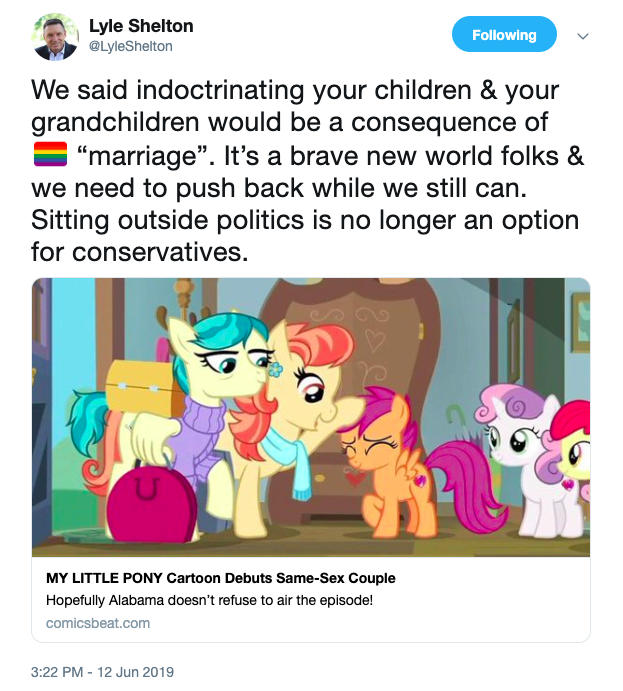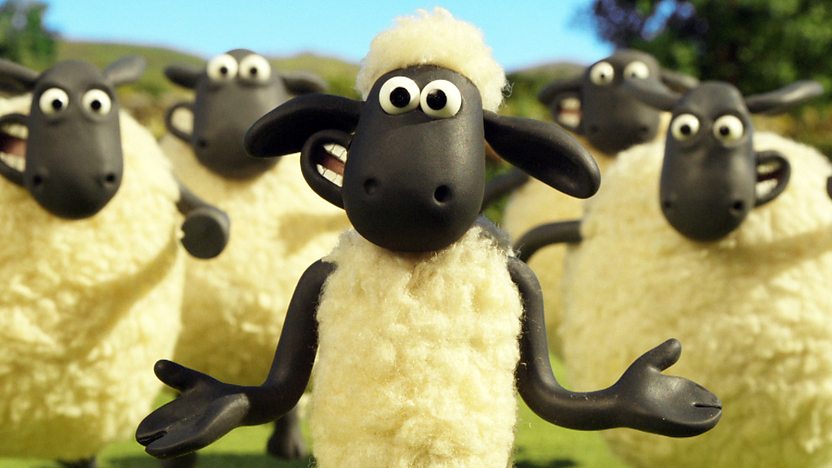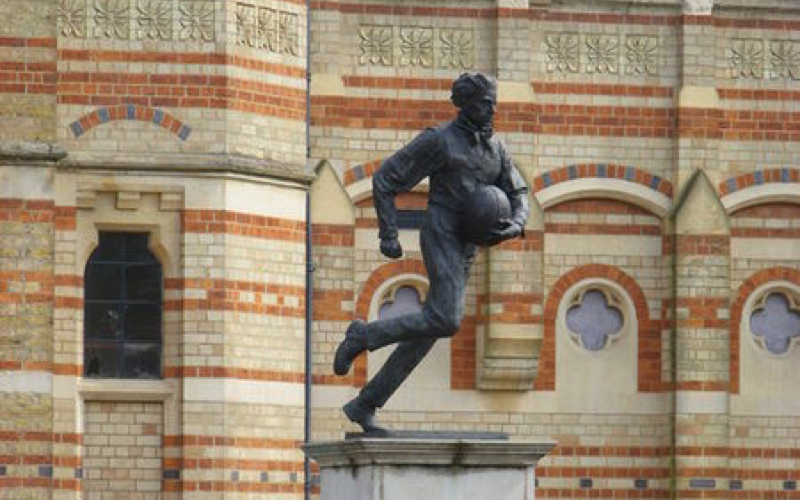Eternity News has asked a few people — including me — to contribute a regular column. This is my latest piece, it should be online over there shortly.
Who can forget the events of January 6, when armed protestors stormed the U.S Capitol building fervently praying, chanting, and singing, while carrying placards bearing the name of Jesus and the occasional wooden cross?
This ‘insurrection’ — complete with prominent figures in the Q-Anon movement, like the self-proclaimed Q-Anon Shaman Jake Angeli, whose conspiracy videos on a variety of topics are available for all to see on the right-wing video sharing platform Rumble. Angeli is a prominent promoter of ‘Q’ related conspiracy theories, metaphysics, and politics, attending rallies for other causes — like Black Lives Matter and climate change — to promote Q and his video channel. I am deliberately using the label “right” rather than “conservative” to make a distinction, particularly around the area of a commitment not just to polarisation, but a culture war footing
This information is easy enough to verify online — yet, prominent figures on the Australian right — including Lyle Shelton, spent energy perpetuating the idea that Angeli was an antifa operative seeking to discredit the legitimate opposition to the election of Joe Biden. A steady stream of voices who are Christian, politically active, and right-aligned are increasingly trying to bring the culture war politics of the American Christian Right into Australia, urging Christians to take up arms to join the culture war.
There have been moments where leading figures in the Australian Right have deliberately borrowed from the American playbook, examples include James Ashby’s ill-fated meetings with the National Rifle Association, seeking NRA financial support for political action here in Australia, and Martyn Iles championing a shift to targeted ‘grass roots’ political action in key, marginal, electorates, leading to the production of ‘how to vote’ cards that preferenced One Nation above mainline political parties in 2019.
This weekend Eternity reported on David Pellowe’s Church and State conference held here in Queensland; in the interest of disclosure, I’m a pastor in a conservative denomination in Queensland and did not attend; and in the interest of further disclosure, I count some of the speakers platformed at this event as friends. I use ‘conservative’ here, rather than ‘right wing’ because I am increasingly convinced these are not the same thing in our political landscape; despite Eternity Columnist James Macpherson’s attempts to push the conservative/progressive distinction in his column yesterday, he, like those platformed at Pellowe’s conference are not conservatives, in that they are not particularly sure what it is they are conserving; he, and others following in the footsteps of American religious right (that culminated in Trumpism), are simply defining themselves by what they oppose — ‘the left’, “cultural marxism,” “critical theory,” and “woke progressive politics.” These are the new code words to help the Christian right identify and demonise (or dehumanise) their ideological enemies.
Pellowe’s Church and State conference happened in Brisbane over the same weekend that the Conservative Political Action Conference (CPAC) happened in the United States; this conference featured the messianic return of Donald Trump, a man heralded by many in the Christian Right — including figures like Eric Metaxas — as something like God’s anointed leader not so much of the free world, but the fight against the political other (and often religious other, that someone might be a Christian and politically left is almost inconceivable to these people). The U.S conference featured a golden statue of Donald Trump, a fitting image of the role political idolatry is increasingly playing in the Christian right, and, no doubt, a stunt designed to be turned into digital images to be beamed around the world. Such digital pageantry serves to animate the right-wing base by shocking the political other and ‘triggering’ outrage; much like Trump’s photo opp on the steps of a church at the height of the Black Lives Matter rallies following the death of George Floyd. Those opposed play into the culture war narrative simply by speaking out in opposition.
Pulitzer Prize winning journalist and Presbyterian Minister in the United States, Christopher Hedges, wrote a piercing critique of the modern political moment, and Trump’s mastery of a new politics of the ‘right’ for Truth Dig that explains both the vivid images of Jake Angeli standing at the heart of the capitol in the insurrection, Trump’s Bible stunt, the golden statue, and the increasingly outlandish behaviour of figures in the Australian (Christian) Right. Hedges argued that we live in an age obsessed with ‘Worshipping the Digital Image’ — a cultural condition effecting all of us.
On the same weekend the CPAC conference was busy propping up the adoration of Trump, Australian Right leader Lyle Shelton (whose memoir is titled ‘I Kid You Not: Notes from 20 Years in the Trenches of the Culture War) was tweeting about the stolen election and the failure of Mike Pence to act to keep Trump in power, and posting photos of his attendance at Pellowe’s conference.
Stephen Chavura, an Australian Academic and thought leader in the Christian Right, wrote a recent opinion piece for the digital culture war Christian Right propaganda machine Caldron Pool; Australia’s Breitbart (and I don’t mean that as a complement, though it may be taken that way). The Caldron Pool is a den of hyperbole, and poorly sourced opinion pieces attacking anybody not on the crusade led by figures with connections to conservative Australian church denominations, including my own — where founder Ben Davis is a member, and regular contributor Mark Powell an ordained minister. Even our national moderator Peter Barnes contributes ‘satirical pieces,’ and a recent denominational communique was leaked to Caldron Pool 16 hours before being sent to ministers and congregations around the nation.
Chavura’s Caldron Pool piece was a call to arms urging Christians to stop seeing the cross as a paradigm for ‘losing cheerfully,’ because we believe that the cross is God’s wisdom, but will be viewed as folly by those seeing wisdom caught up with worldly power (like Paul in 1 Corinthians 1). Chavura said “Could we please stop talking about cheerfully and graciously losing the culture wars as though they are some faculty lunchroom discussion and of no great consequence in the long term?… In other words, to hell with losing cheerfully. Let’s fight furiously.” Chavura was a speaker and panellist at Pellowe’s summit; speaking against Critical Race Theory.
Fairfax-Nine media reported that this summit — which also featured right-wing politicians George Christensen, and Matt Canavan, as well as Shelton’s successor at the Australian Christian Lobby (ACL), Martyn Iles — was another call to arms in the culture wars.
In 2019, Iles told Eternity News that his desire was to shift the ACL from an advocacy group to a movement facilitating grass roots political action, and that this represented “a change away from conviction politics to pragmatism.” That the ACL publicly makes it clear that they have shifted from something like a virtue framework, to a utilitarian one, explains why they are happy to preference One Nation (a Right Wing party) on how to vote cards because One Nation politicians give better access to Christians, or as Iles put it in another interview with Eternity “One Nation are actually very very good to work with. You know One Nation senators’ doors are open. They talk to us. They actually want to know what it is that we have to say, and I find working with them far more pleasant and constructive and leading to good results than working with the vast majority of other cross-benchers in the Senate, and that’s just the way it is.” Such pragmatism might also explain why Iles was keen to support and share a platform with footballer Israel Folau, an avowed oneness Pentecostal from a fringe quasi-Christian movement led by his father and cousin (whose sermons can be watched online), and to describe him publicly as a Christian, on the basis of Folau’s shared sexual ethic (if not his fundamental theological convictions).
Fairfax reports a conversation on the Q&A panel at the conference between Pellowe and Iles as follows:
“In a later panel discussion, Mr Iles joked that his father often said “we need a good war” to sort this out and “there’s a little bit of truth in that”, because society would not be so concerned about climate change or gender identity if we were at war with China.
Mr Pellowe then interjected: “We’re not advocating violence or revolution … today.” Mr Iles added: “Not yet, that’s down the line.”
While Iles and Shelton have both been vocal in their support for Trump, and their scepticism about the results of the U.S election, the ACL has pivoted under Iles’ leadership, part of the shifts to pragmatism-driven grassroots campaigning has involved both a rebrand and a renewed commitment to social media content production and activism. Iles hosts a regular video panel show, and has positioned himself as a commentator on any current event — from the death of Ravi Zacharias (who he praised), to racism and critical theory, to bushfires and climate change, to sexism, sexual assault and the weaponization of rape accusations in parliament house. Every piece of commentary is brought through the lens of the culture wars to attack the pernicious left, cultural Marxism, and the power games Iles finds himself fighting against. Even how Christians refer to Jesus is brought through the prism of the culture war; with a recent post decrying the ‘trend’ for Christians to simply talk about “Jesus” without his divine titles.
Iles rails against censorship and cancel culture as ‘power games’ employed by the left to silence truth, but his crack team of social media moderators are adding to a long list of cancelled (or blocked) commenters on his page daily — silencing those who dare criticise their boyish, golden haired, leader. I joined that list on Sunday after questioning his take on the use of the name Jesus, and inviting respected academic, historian, and public Christian voice John Dickson to comment (which he did). My comment, and John’s response, were ‘disappeared’.
These figures on the hard right are loudly critical of the ABC, the academy, and the ‘leftism’ they find hiding behind every corner and marching through every institution. They find echo chambers for their rage on digital platforms like the Caldron Pool, and the Spectator — and some, like James Macpherson, slip into the opinion section of Eternity News.
They are raging against the machine. They refuse to go gently into the good night, and rage, rage against the dying of the light. And yet, perhaps they fail to see that by playing the political game using the tools of the kingdom of darkness it is they who are hastening sundown, and that their combative culture war footing solidifies and catalyses the strident opposition of the left. Polarisation takes two; and so does a war. These culture warriors who claim to serve a crucified king might spend some time reflecting not just on the words of Paul in 1 Corinthians, but the words of their general — and king — the Lord and Saviour Jesus Christ.
Conservative American Christian leaders committed not just to the way of the cross, and the fundamental belief in the separation of church and state — because of the ontological difference brought about by the indwelling of the Spirit in the life of the church, and the change that brings to our capacity to obey God, know truth, and live a life shaped by new hearts ‘from above’ that love God, and love our neighbour as we love ourselves, with a love shaped by Jesus’ love for us — were quick to rally against the Christian Right, the Culture War posture, and especially against Trump. Conservative voices like Karen Swallow Prior, David French, Alan Noble raised concerns consistently through Trump’s initial campaign, his time in office, and in the 2020 election — others like Rod Dreher joined their voices to the cause after watching not just conservatism’s moral credibility, but the church’s moral authority over young members dissipate as support for Trump increased.
They were largely ineffective in pragmatic terms — and the political air we breathe in the modern west is one where pragmatism and technology loom large, and where spiritual truth has been evacuated from political discourse (as Charles Taylor, Jacques Ellul, and Alisdair Macintyre might tell us). But the Australian religio-political landscape desperately needs the equivalent of the Lincoln Project, or Never-Trump Republicans speaking up within the boundaries of the church. Australia’s inherent centrism, our Westminster democracy, and other inherited cultural factors might protect us from some of the excesses, and widespread influence, of the American Religious Right and Trumpism; but with our relationship to the American church (especially via thought leadership and resources) Q-Anon conspiracy thinking, Culture War polarisation, and pragmatism are never far from our doors. These figures are marginal figures in the Australian landscape; Shelton received just 5,533 votes in his Senate bid with the Australian Conservatives; but they wield disproportionate impact in the church.
The Christian thinker who popularised the term ‘culture wars’ (from the German Kulturkampf), James Davison Hunter, has much less lofty goals for Christians in the post-Christendom, secular, pluralist, modern west. His vision for participation in society and politics is one marked by being a faithful presence in communities, institutions and political parties — not seeking to dominate, or win a culture war, but to participate as ambassadors, of the kingdom of heaven, or images of Jesus Christ, bearing witness to his nature as an alternative king. When it comes to the culture war — which the Australian Christian Right is keen to import to our shores, Hunter said “America was never, in any theologically serious way, a Christian nation, nor the West a Christian civilization. Neither will they ever become so in the future. The goal for Christians, then, is not and never has been to “take back the culture” or to “take over the culture” or to “win the culture wars” or to “save Western civilization.”
It is notable that every ‘thought leader’ pushing the culture war agenda in this piece is a man, and that many fighting against the culture war agenda (and so being engaged in combat) are men too. There are many reasons for this, to be sure, but one is the vicious way women who speak out against the culture war and the Christian Right are treated by the right, especially online. The abominable treatment of Karen Swallow Prior on Twitter, or by Pulpit and Pen (America’s Caldron Pool) is one clear example.
We are stuck in the paradox of the age of the digital image; giving attention adds fuel to the fire, but ignoring them won’t actually work either, because they are building an army of the aggrieved and alienated. What might work is peacemaking; bringing loving attention rather than what Hunter called ‘ressentiment’ to our interactions, and seeking to build relationships with these leaders across the divide, but also with those inclined to hear the call to arms. We do all claim to worship the Prince of Peace, the one who said “blessed are the peacemakers,” and who came to fulfil these words of Isaiah the prophet:
“He will judge between the nations
and will settle disputes for many peoples.
They will beat their swords into plowshares
and their spears into pruning hooks.
Nation will not take up sword against nation,
nor will they train for war anymore.” — Isaiah 2:4
It’s harder to go to war against your neighbours if they’re also your friends.



